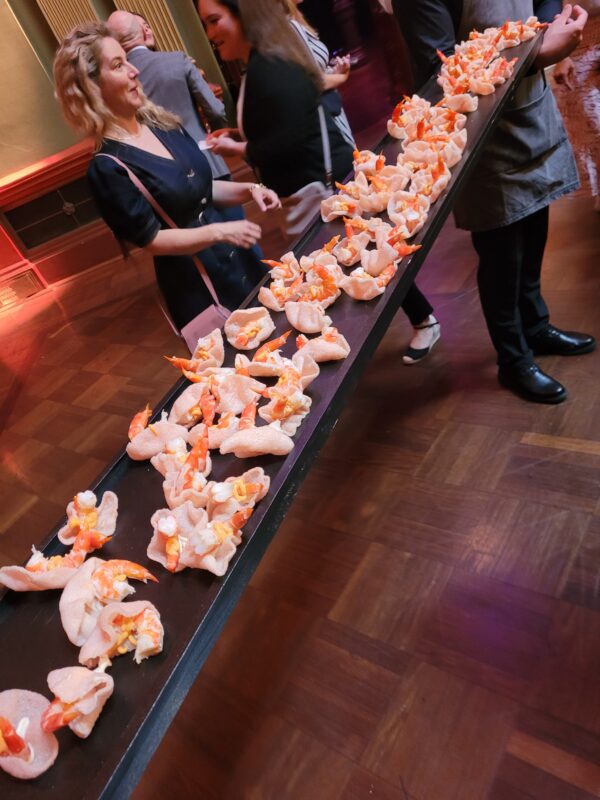What is accepted in advertising today, won’t be tomorrow
Last week saw the last of the TV upfronts, where the networks showcase their various wares for 2024 – with SBS booking the Town Hall on Tuesday for a convivial, flower-filled luncheon.
Before I go on, I would like to applaud this prawn delivery system served up before the upfront – proof positive that SBS rules when it comes to content.


